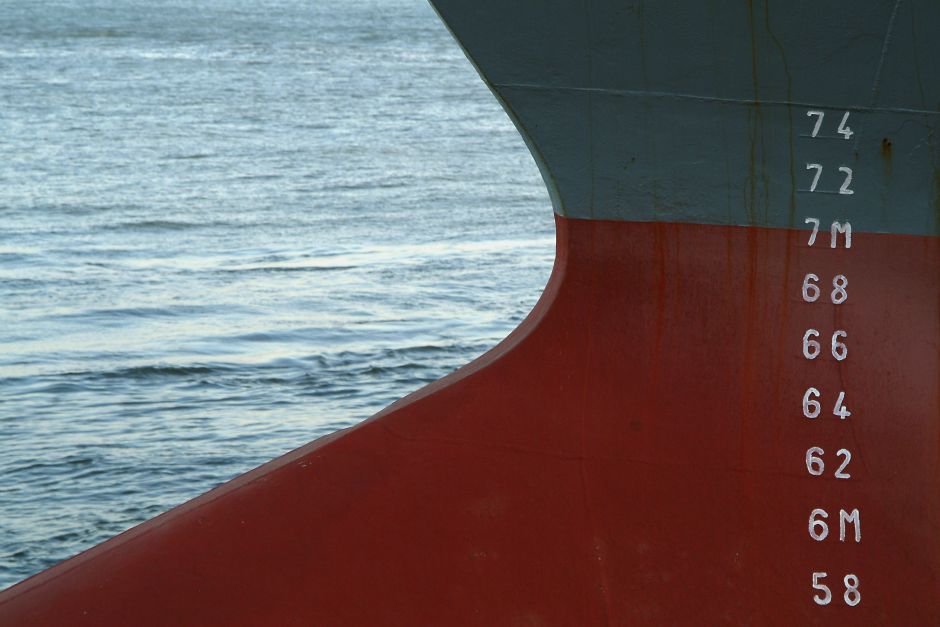OECD: Sweden world leader in decarbonization of shipping

The Swedish maritime sectors decarbonization is at the forefront of maritime decarbonisation, compared to other shipping nations. That is the conclusion in a report from OECD presented this month.
The report is written by Olaf Merk, with contributions from Bénédicte Busquet. The report was made possible through a voluntary contribution by the Swedish Shipowners’ Association. In the reports summary OECD writes:
"The Swedish shipping industry has been very active in decarbonising shipping. Its industry association has formulated a target of zero-carbon shipping by 2050 and various Swedish shipping companies are pioneers in low-carbon shipping. The country now counts a number of innovative green vessels projects. Stena Line runs a ferry on methanol; Sirius Shipping has developed a ship-to-ship LNG bunkering vessel; numerous Swedish shipping companies - such as Terntank, Erik Thun and Rederi Gotland – have pioneered services with LNG-propelled vessels; and both HH Ferries and Green City Ferries have introduced electric ships.
This pro-active approach in Sweden is driven by an effective partnership of responsible shipping companies and shippers. Most Swedish shipping companies are family owned, and most shipping families are traditionally located in Donsö, a de facto maritime cluster that stimulates trust to cooperate in developing green and innovative ships.
The interest of Swedish ship-owners in sustainability and innovation has been encouraged by large Swedish shippers, such as the energy company Preem, that are dedicated to green supply chains. This has resulted in partnerships between shippers and shipping companies that overcome barriers that have traditionally hampered progress in greening shipping. In particular the willingness of certain shippers to commit to long-term charter contracts with the new lowcarbon ships seems to have been a main determining factor.
Sweden’s progress can also be explained by stakeholder cooperation, some financial support and regulation. An exemplary case of stakeholder cooperation has been the “Zero Vision Tool”, a platform for cooperation between shipping industry, government and the research community, to solve bottlenecks to greening maritime transport via specific pilot projects. This tool has made it possible to test possible solutions and share results with all relevant stakeholders, not only in Sweden but also in the Baltic Sea region.
Some financial instruments, including EU assistance and the Norwegian NOx Fund, also helped ship-owners to invest in expensive but lower-carbon ships. Stricter regulations on sulphur emissions, such as the requirements in emission control areas (ECA), have further stimulated the demand for LNGpropelled ships that reduce sulphur emissions and – to a certain extent – carbon emissions.
Despite much progress, even in Sweden the decarbonisation of maritime transport is still at an early stage. More is needed if the sector wants to achieve its goal of zero-carbon shipping by 2050. The major challenge is how to upscale current initiatives and obtain more finance and policy support, both nationally and globally.
The business case for low-carbon ships is not always very clear. Ship owners (and their financiers) wonder whether they will be able to recover the additional costs that they have to incur. Current financial frameworks do not value the external benefits of decarbonisation and sometimes apply a risk premium to unknown or untested technologies. Although the financial sector might eventually consider ships that run on heavy fuel oil as potential stranded assets (and add a risk premium for these ships), this is not yet the case. For a smoother transition towards a decarbonisation pathway, additional financial tools and incentives might need to be offered from both private and public finance.
The national government in Sweden has formulated ambitious decarbonisation targets. This ambition has not translated yet into a coherent and comprehensive decarbonisation strategy of the government for the shipping sector. In some cases, such as a recent reform of the fairway dues, government policy seems to be frustrating the development of low-carbon shipping.
Even if policies can move all Swedish shipping towards the level of the pioneers, the effect on global shipping emissions would still be marginal. Good practices thus need to be up-scaled globally for overall shipping GHG emissions to decline. Other countries can learn from Sweden that it is possible to move towards decarbonisation of maritime transport even when the global level of ambition is still undefined. Instruments such as the Zero Vision Tool could also be fruitfully applied in other countries to solve bottlenecks related to the decarbonisation of maritime transport."
Reccomendations by OECD:
- Make available more financial tools and incentives to support the decarbonisation of shipping
- Increase public policy support for decarbonisation of the maritime industry
- Upscale best practices in maritime decarbonisation internationally
-
 DNV: Metanol är ett moget alternativt bränsle
DNV: Metanol är ett moget alternativt bränsle -
 Se Hållbar sjöfarts uppsamlingsheat
Se Hållbar sjöfarts uppsamlingsheat -
 NextWave – en podd som ska locka unga
NextWave – en podd som ska locka unga -
 Ny studie: Eldrivna pendelbåtar kan effektivisera Stockholms kollektivtrafik
Ny studie: Eldrivna pendelbåtar kan effektivisera Stockholms kollektivtrafik -
 Sjöfartens utsläpp ökar
Sjöfartens utsläpp ökar -
 Sociala relationer påverkar val av bränsle
Sociala relationer påverkar val av bränsle -
 Sjöfartens omställning kräver ”mjukare” påtryckningar
Sjöfartens omställning kräver ”mjukare” påtryckningar -
 Hon hade avtalad tid med Kapten ynkrygg
Hon hade avtalad tid med Kapten ynkrygg -
 Lighthouse omvärldsanalys 2025 – osäkerhet och tullar präglar sjöfarten
Lighthouse omvärldsanalys 2025 – osäkerhet och tullar präglar sjöfarten -
 Se seminariet Shipping in the Marine Environment
Se seminariet Shipping in the Marine Environment

